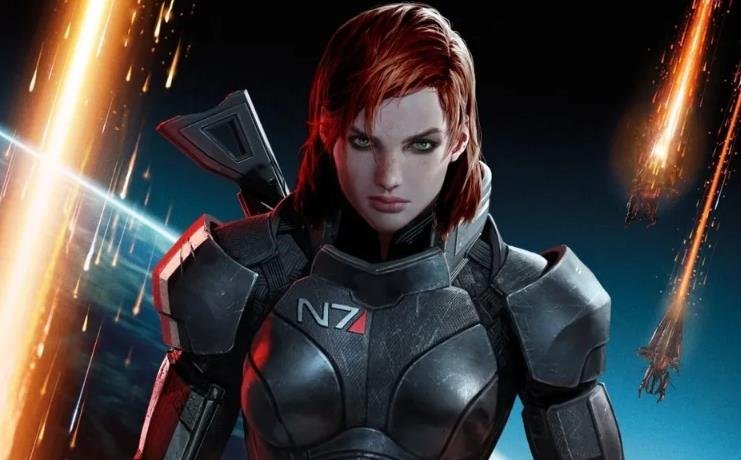SAG-AFTRA, the union that represents voice and motion capture actors in the video game industry, has announced that its members have voted overwhelmingly in favor of a strike authorization against 10 of the major video game companies. The vote was 98.32% in favor, with 34,687 members casting ballots, representing 27.47% of eligible voters.
What does this mean for the video game industry?
A strike authorization does not mean that a strike will definitely happen, but it gives the union negotiators the power to call for one if they deem it necessary during the negotiations that resume on Wednesday. The union has been bargaining with the video game companies since June 2020, but has failed to reach an agreement on several key issues, such as compensation, safety, and the use of artificial intelligence.

The union is demanding that video game performers receive wage increases that are comparable to those of film and TV actors, as well as residuals or bonuses based on the sales or popularity of the games they work on. The union is also seeking protections against vocal stress, which can cause permanent damage to the actors’ voices, and a five-minute rest period per hour of work, which is already granted to off-camera performers. Additionally, the union wants to limit the use of artificial intelligence to manipulate or replace the actors’ performances without their consent or compensation.
The video game companies, on the other hand, have argued that the union’s demands are unreasonable and unrealistic, given the different nature and economics of the video game industry. They have offered a 3% wage increase per year, which they claim is higher than the average increase in the entertainment industry, and a one-time bonus of up to $1,000 per game based on the number of sessions worked. They have also proposed a new category of performers called “atmospheric voices”, who would be paid a lower rate for providing background or incidental dialogue.
What are the reactions from both sides?
SAG-AFTRA President Fran Drescher said in a statement that it’s time for the video game companies “to stop playing games and get serious about reaching an agreement on this contract.” She added that “the result of this vote shows our membership understands the existential nature of these negotiations, and that the time is now for these companies — which are making billions of dollars and paying their CEOs lavishly — to give our performers an agreement that keeps performing in video games as a viable career.”
SAG-AFTRA National Executive Director and Chief Negotiator Duncan Crabtree-Ireland said that “after five rounds of bargaining, it has become abundantly clear that the video game companies aren’t willing to meaningfully engage on the critical issues: compensation undercut by inflation, unregulated use of AI and safety.” He said that he remains hopeful that an agreement can be reached, but “our members are done being exploited, and if these corporations aren’t willing to offer a fair deal, our next stop will be the picket lines.”
On behalf of the video game producers negotiating the Interactive Media Agreement, spokesperson Audrey Cooling said in a statement that “we will continue to negotiate in good faith to reach an agreement that reflects the important contributions of SAG-AFTRA-represented performers in video games.” She said that “we have reached tentative agreements on over half of the proposals and are optimistic we can find a resolution at the bargaining table.”
What are the implications for the gamers and developers?
A potential strike by SAG-AFTRA could have significant impacts on the video game industry, especially as it is recovering from the effects of the COVID-19 pandemic. Many video games rely on voice and motion capture actors to bring their characters and stories to life, and a strike could delay or disrupt the production and release of some of the most anticipated titles. Some of the games that could be affected by a strike include:
- Star Wars: Knights of the Old Republic Remake, which is being developed by Aspyr Media and Lucasfilm Games for PlayStation 5 and PC.
- God of War: Ragnarok, which is being developed by Santa Monica Studio and Sony Interactive Entertainment for PlayStation 4 and PlayStation 5.
- Horizon Forbidden West, which is being developed by Guerrilla Games and Sony Interactive Entertainment for PlayStation 4 and PlayStation 5.
- Marvel’s Spider-Man 2, which is being developed by Insomniac Games and Sony Interactive Entertainment for PlayStation 5.
- The Last of Us Part II Factions, which is being developed by Naughty Dog and Sony Interactive Entertainment for PlayStation 4 and PlayStation 5.
- Halo Infinite, which is being developed by 343 Industries and Xbox Game Studios for Xbox One, Xbox Series X/S, and PC.
- Starfield, which is being developed by Bethesda Game Studios and Bethesda Softworks for Xbox Series X/S and PC.
- Elden Ring, which is being developed by FromSoftware and Bandai Namco Entertainment for PlayStation 4, PlayStation 5, Xbox One, Xbox Series X/S, and PC.
A strike could also affect the working conditions and morale of the video game developers, who often face long hours, crunch, and burnout in the industry. Some developers have expressed their solidarity and support for the SAG-AFTRA members, while others have expressed their frustration and anxiety over the possible consequences of a strike.
What are the next steps?
The negotiations between SAG-AFTRA and the video game companies are scheduled to resume on Wednesday, September 27, 2023. Both sides have said that they are willing to continue the dialogue and find a mutually beneficial solution. However, if no agreement is reached by then, the union could call for a strike at any time, which would require its members to stop working on any video game projects that are not covered by a previous contract. The last time SAG-AFTRA went on strike against the video game industry was in 2016, and it lasted for nearly a year before a new contract was ratified in November 2017.
